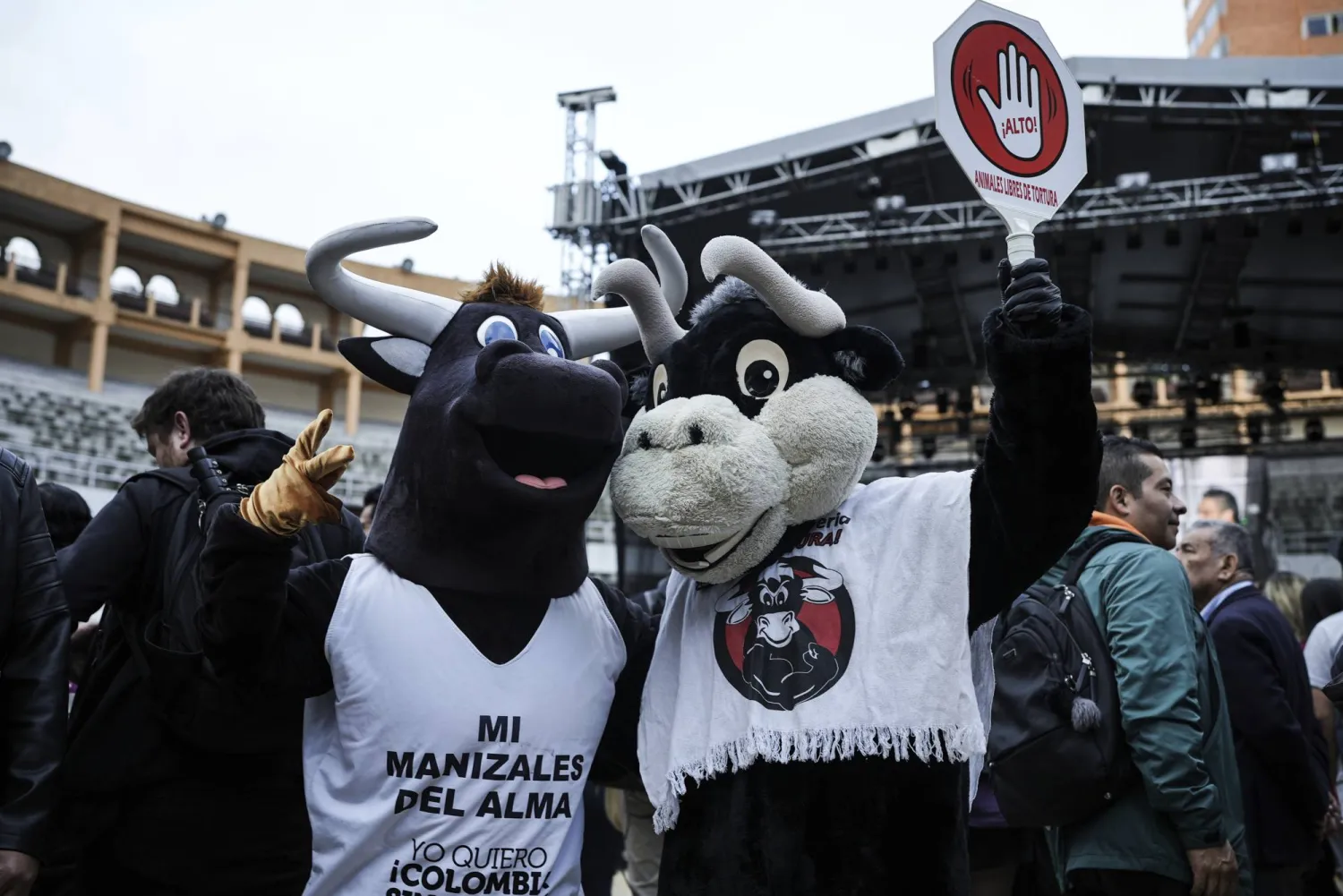Colombian President Gustavo Petro on Monday signed a bill that bans bullfights in the South American country, further reducing the short list of nations around the world where the centuries-old tradition is still legal.
Petro signed it in front of hundreds of animal rights activists during a ceremony held in Bogota’s bullring, after a supporter in a bull costume handed him a copy of the legislation, The Associated Press reported.
“We cannot tell the world that killing living and sentient beings for entertainment is culture,” Petro said in a speech after signing the bill. “That kind of culture of killing an animal for entertainment would also lead us to killing human beings for entertainment, because we are also animals.”
The bullfighting ban was approved by Colombia’s Congress in May, after months of heated debates.
The bill calls on the government to completely ban bullfights across the nation by 2027, and orders the government to turn more than a dozen bullrings into cultural and sporting venues.
Bullfights have been held in Colombia since Spanish colonial times. But the popularity of the sport has declined in recent years as views on animal rights changed.
Bullfighting aficionados in Colombia argue the ban violates the rights of minorities to express their cultural heritage. They add that it also jeopardizes the livelihoods of those who make a living from bullfighting, such as matadors, event promoters, merchants and ranchers who specialize in breeding the aggressive and muscular animals used in bullfights.
On Monday, pro bullfighting groups launched a social media campaign in support of the tradition, saying the bill was approved without the support of Colombia’s labor ministry. Supporters have also said they will challenge the law in Colombia’s Constitutional Court.
Only seven countries now allow bullfights: Spain, France, Portugal, Mexico, Venezuela, Ecuador and Peru. However, some municipal and regional governments within those countries have imposed local bans.









